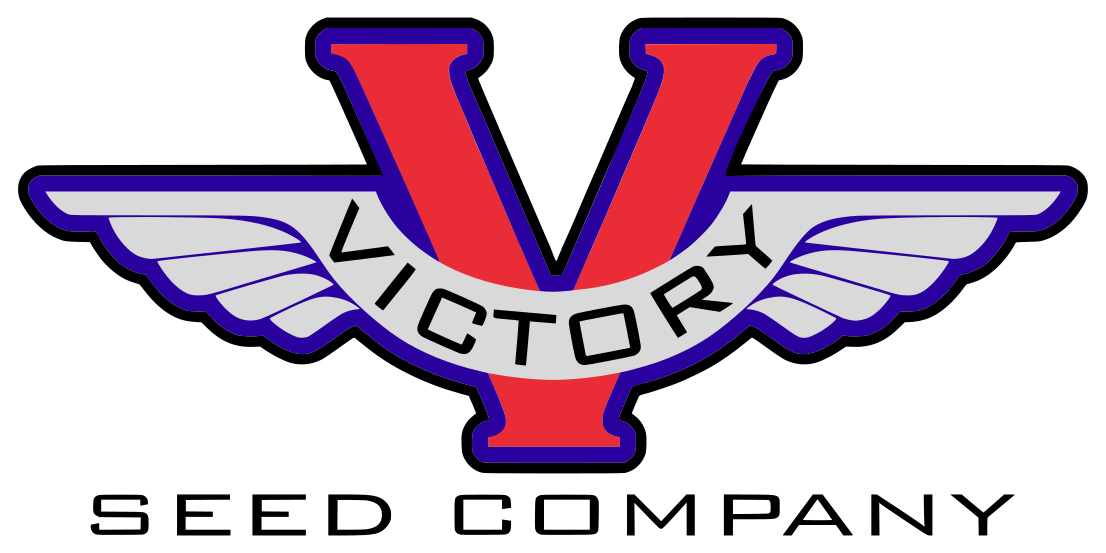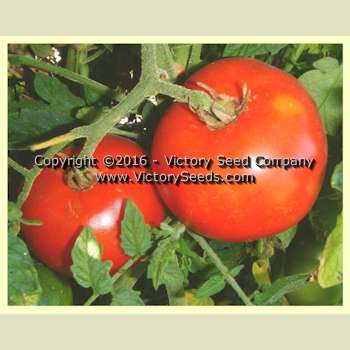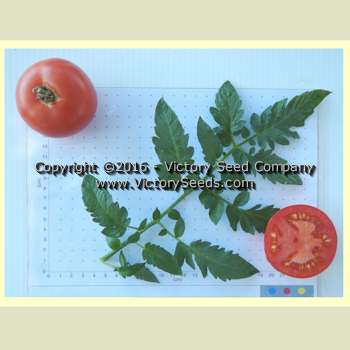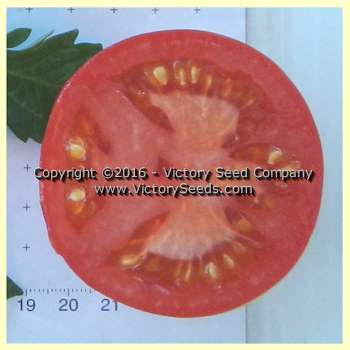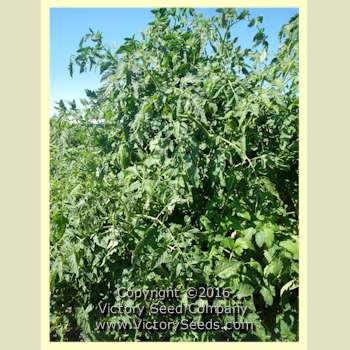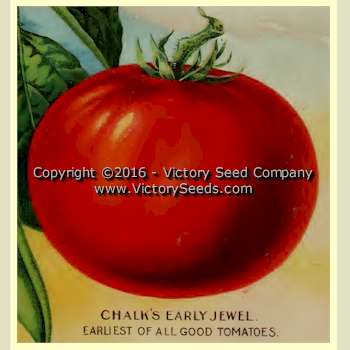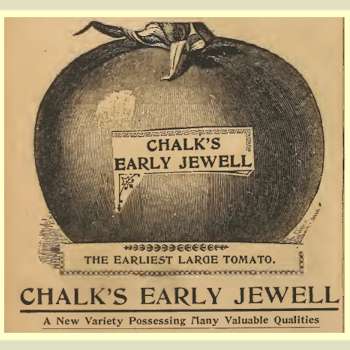Chalk's Early Jewel Tomato
Chalk's Early Jewel Tomato
Regular price
$2.95 USD
Regular price
Sale price
$2.95 USD
Unit price
per
Shipping calculated at checkout.
Couldn't load pickup availability
 VERY IMPORTANT NOTE: This product will be available again in early January, 2025. If currently out of stock, please signup above to be notified when it becomes available.
Click here to learn
more about our seasonal products.
VERY IMPORTANT NOTE: This product will be available again in early January, 2025. If currently out of stock, please signup above to be notified when it becomes available.
Click here to learn
more about our seasonal products.85 days, indeterminate — The regular leafed vines of 'Chalk's Early Jewel' are vigorous, productive and reliable. Its fruit are smooth, generally uniformly red in color, globe to flattened-globe shaped, and typically range from two to six ounces each. Some larger sized tomatoes can occur.
It delivers a classic, balanced flavor that is neither too tart or too sweet. Attesting to its qualities, 'Chalk's Early Jewel' has remained commercially available since its introduction over one hundred years ago.
Said to be the culmination of ten years of selection work by James Chalk of Norristown, Pennsylvania after crossing Livingston's 'Perfection' with 'Hubbard's Curled Leaf' in 1889.[3] It was introduced by Moore & Simon of Philadelphia in 1900.[2.5] 'Chalk's Early Jewel' is a parent of 'Bonny Best' and Bolgiano's 'I.X.L.'.[2,3,4]
Several years later, W. Atlee Burpee introduced it to their customers in their 1904 Farm Annual dedicating a whole page as well as a color cover illustration. They further claimed, "Seed grown by Chalk can be had only direct from us in our sealed packages. Unfortunately, however, while we have his entire crop, Mr. James Chalk saved less than one-half the quantity desired, and consequently the price is necessarily high."
Our stock was grown out from USDA accession number PI 339940. Each packet contains approximately 20 seeds.
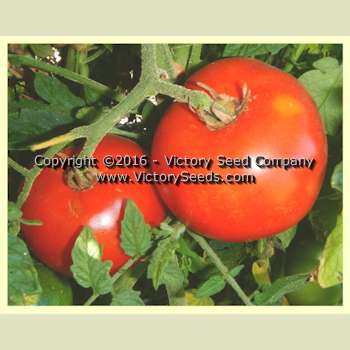
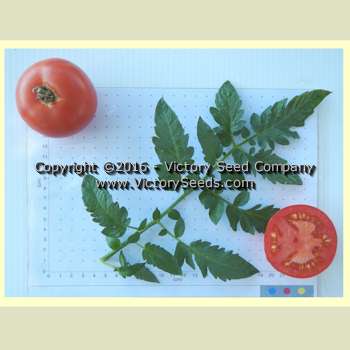
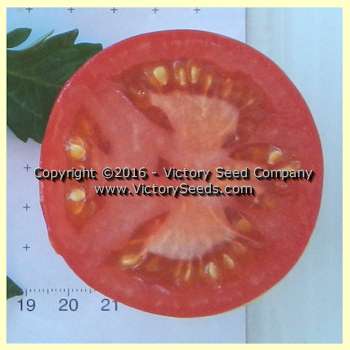
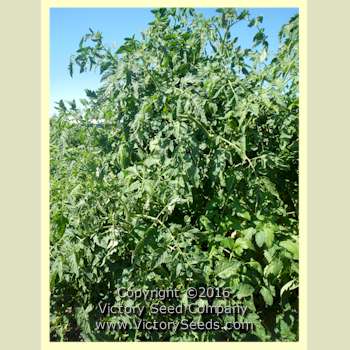
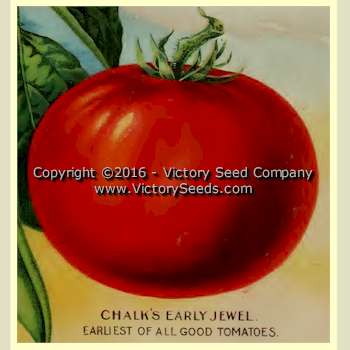
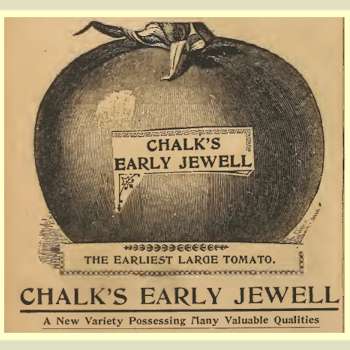
Informational Sources:
- "Growing Tomatoes in Kansas", by Walter B. Balch, Kansas State College of Agriculture and Applied Science, A.E.S., Circular 172, November 1933.
- "Yearbook of Agriculture," USDA, 1937.
- "Tomato Varieties," by Gordon Morrison, Michigan State College A.E.S., Special Bulletin 290, April 1938.
- "The Pedigree of Varieties of Lycopersicon Esculentum Mill.," G. A. Kemp, Canada Department of Agriculture, Lethbridge, Alberta, April 20, 1960.
- "Profit in the Garden," 1900 seed catalog of Moore & Simon, Philadelphia, Pennsylvania.
Explore our vegetable collections:
[ Artichokes | Asparagus | Beans | Beets | Broccoli | Sorghums | Brussels Sprouts | Cabbage | Cantaloupe | Carrots | Cauliflower | Celery | Collard Greens | Corn | Cucumber | Eggplant | Endives | Gourds | Kale | Kohlrabi | Leeks | Lettuce | Mesclun Mix | Mustard Greens | Okra | Onions | Parsley | Edible Pod Peas | Garden Peas | South Peas | Hot Peppers | Mild Peppers | Pumpkins | Radishes | Rapini | Rhubarb | Salad Greens | Salsify | Summer Squash | Winter Squash | Swiss Chard | Tomatillo | Tomatoes | Dwarf Tomato Project | Turnips | Watermelons ]
